“‘I am not.’
“‘Not what?’
“‘Unhappy,’ Hutton says.
“‘So then you are happy. Can we reliably agree on that?’
“‘I’m afraid not.’
“‘You’re not happy?’
“‘That’s right,’ Hutton says.
“‘And you’re not unhappy?’
“‘True.’
“‘For God’s sake , man! You’re neither happy nor unhappy.’
“‘I’m afraid I’m neither. It’s the bodies.’
“Hector pauses and sort of pulses on the screen, as if there was a strobe light inside of him,” Laing says.
“‘The bodies, Hutton?’ Hector more says than asks.
“‘The ones out there,’ Hutton replies, pointing weakly at the camera, which means of course that he’s pointing at Aimee and me, us and our world on the other side of the screen, or wall I should say, the white wall of my cramped library office where we were projecting the film.
“There must have been missing footage because the movie cuts — cuts as if slashed across the eye with a razor — from that moment to a shot depicting Hector, who has left the car and is running down the boulevard. The film jumps to life in a new, revolutionary sort of way, the colors more vibrant (even though it’s night), the camera movement more aggressive.
“‘Follow me! Hutton!’ he screams. Hutton starts the car, turns on the headlights, follows Hector as he runs, impossibly fast it seems, faster than any movie camera can follow, down the boulevard, his white suit glowing like phosphorous, until he comes upon another man, also dressed in white, also running, and Hutton trying to follow as they cut through quiet side streets and down dark alleys, in Hutton’s mind a slow realization blossoming (though again I don’t remember how exactly the film conveyed this) that he is being led into some trap, some circumstance from which there will be no escape, and the longer he follows Hector and the Hector look-alike — now indistinguishable in the night in the uncertain glow of headlights — the more trouble he’s in, the deeper into some metal-melting maze, and that is why, at the last moment, Hutton turns the wheel in the opposite direction of the men he’s following, makes his way back to the familiar highway, and drives in escape-mode at impossible speeds. This part is shot from the backseat, where Hector had been sitting. The highway is blocked by flashing lights — either a terrible accident or a police blockade — and so Hutton takes an exit ramp that leads onto a service drive and then into a neighborhood littered with broken glass bottles. We hear an explosion or a gunshot and quickly realize, at the same time Hutton does, that one of his tires has blown. He stops the car beneath a tilting streetlamp and then notices that all of them are tilted in the same direction and when he gets out of the car he realizes why: the wind here is so strong and steady that over the years the street lamps have slowly bent, and his coat blows up over his head from behind, blinding him for the few moments it takes for there to be a slow dissolve from the backseat of the car to an angle and position across the street from Hutton. The style has shifted again and now the camera movements are slow and steady and as he stands there in the night beneath the streetlight we — but not Hutton — can see the man in white, who is either Hector’s doppelganger or else a person who is similar to but not quite a duplicate of Hector, crawling (it seems like he’s crawling) in the deep-focus, back part of the frame, behind Hector. Aimee can’t help laughing at this point, and I remember that somehow her laughter broke the movie’s spell for me right then and there, so that the anarchic, maniacal chase that followed seemed somehow to be a letdown, even though, thinking back on it now, talking with you, it was a remarkable sequence.
“So, Hutton turns suddenly, as if alerted to Hector’s double by the implied audience watching the film, and takes off on foot after him, the camera tracking along smoothly behind and sometimes beside him like that remarkable opening shot from Touch of Evil . It’s only after around five or six minutes of Hutton running and breathing hard as if right on the heels of Hector’s double that we realize that Hector’s double is actually nowhere in sight. What has Hutton been chasing all this time? He leans over to catch his breath, the palms of his hands on his knees. There’s a bright flash of light that’s sourced from what appears to be right outside the left part of the frame and Hutton reacts by reaching into his shoe or sock and pulling out what seems to be a gun, because that’s the most logical thing for it to be. But it’s not a gun, or rather not the sort of gun we’ve ever seen before. It’s more like an insect in the shape of a gun, with a barrel or snout that resembles a needle or a mosquito proboscis and it seems to droop ( melt, Aimee had said at the time) and Hutton has to shake it violently before it holds its shape. He takes aim at whatever it is off screen and the gun or gun-like object he’s holding appears to be breathing, or expanding and contracting in a way that suggests breathing and then, just when he’s ready to fire, there’s another flash of light and then another and he drops the gun and steps back from it as if it’s the gun itself that has caused the flashes. This is when he makes an obscure decision that hints at the apocalyptic ending sketched out in Deren’s notes. Instead of fleeing, Hutton steadies himself and steps with great care and grace toward the source of the flashes. But the camera doesn’t move or follow. Absent of any human beings or action, what we’re left with is a static shot of some buildings in the distance, in the night, and the sound of the wind. I remember that Aimee said Look, here it comes and I expected blood or something worse to fill the screen but instead it gradually voided out, the creeping blackness filling everything and that’s how it ended, in a consuming blackness that plunged the room itself into the night.”
Aitswal Beach (1969 or ’70)
AXXON N. (1980)
The Murderous King Addresses the Horizon (1910)
The Story of A. (Laing’s digression)
Blinding Forward (1990)
THE NEXT MORNING LAING’S NOT AT THE MOTEL. Or he’s there but not answering my knocks at the door. I drive around for a while, circling the motel a few times, slowly, and it’s then that I notice the red X painted on one of the room doors two floors above Laing’s. A blood-red X across the entire door, condemning what lies on the other side or, worse, the one who looks upon it. At that moment I feel the presence of my daughter Emily so strongly, so intensely, as if she had not died at age nine but instead lived and blossomed into a young woman beside me now, making the adventure complete, snapping pictures of the marked door as if it was too dangerous (“hot,” she’d say, “it’s too hot”) and we needed to keep our distance and not look at the door directly in the same way you shouldn’t stare at the sun. Seeing that X’ed over door, I understood it was either a signal not to enter or a signal that this was the very door — the only door — that must be entered. (Emily, born of the one married to Christ and then no longer married to Christ, who died at age nine but began to die, to perish, at age eight, when the nosebleeds began to last beyond reason, the tumor growing in her head, her very own body killing itself. I thought here too of Lucy Snowe’s description in Villette of an enormous garden hidden in the heart of a city, a garden that contained, if you knew where to look, “the portal of a vault” that held imprisoned in it “the bones of a girl whom a monkish conclave of the dreary middle ages had here buried alive, for some sin against her vow.”) Could Laing possibly understand that the stories he was telling me about the films he destroyed weren’t about the films at all, but something else, a deep code, and that I hoped to find in one of his phrases some black magic, a curse or a prayer or a spell or an incantation that would crack it? In college I had a physics professor who wrote the date and time in red marker on a sheet of white paper and then lit the paper on fire and placed it in a metallic mesh basket on the lab table where it burned to ashes. He asked us whether or not the information on the paper was destroyed and not recoverable, and of course we were wrong, because physics tells us that information is never lost, not even in a black hole, and that what is seemingly destroyed is, in fact, retrievable. In that burning paper the markings of ink on the page are preserved in the way the flame flickers and the smoke curls. Wildly distorted to the point of chaos, the information is nonetheless not dead. Nothing, really, dies. Nothing dies. Nothing dies.
Читать дальше
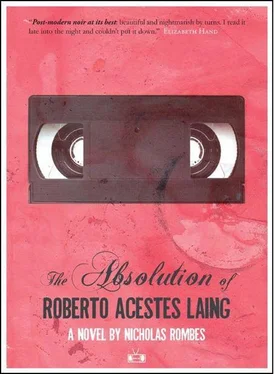
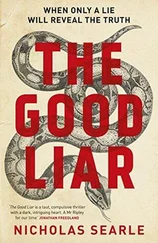
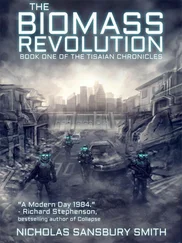



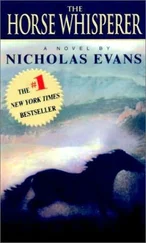
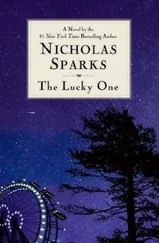




![Nicholas Timmins - The Five Giants [New Edition] - A Biography of the Welfare State](/books/701739/nicholas-timmins-the-five-giants-new-edition-a-thumb.webp)